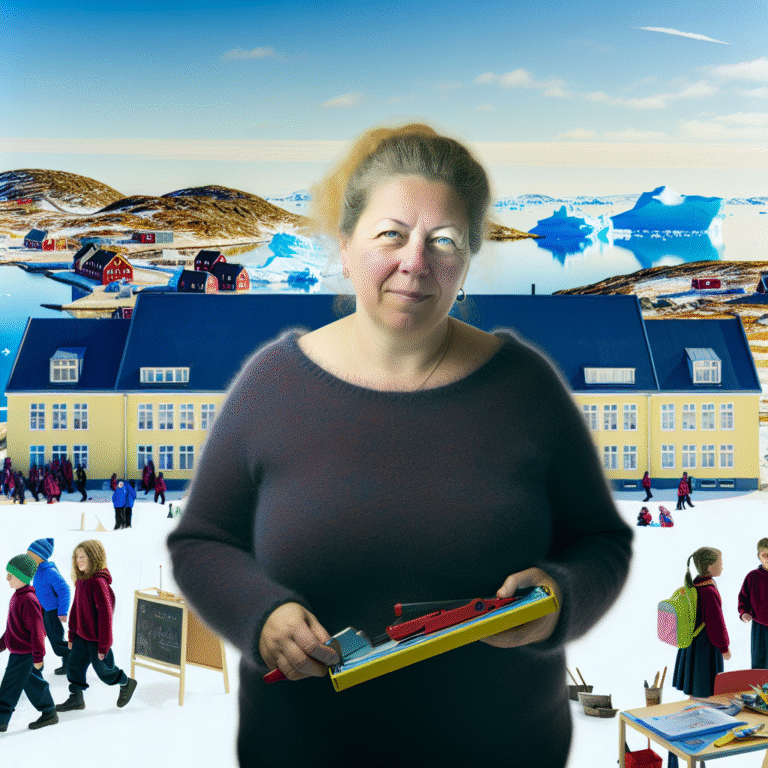Naalakkersuisoq for Education, Nivi Olsen, Addresses Educational Enhancements Without Closing GUX in Aasiaat
In a recent statement, Nivi Olsen, the Naalakkersuisut member responsible for education, reassured the public that there are no plans to shut down GUX in Aasiaat. Rather, her focus is on expanding educational offerings, particularly with the introduction of new programs in Ilulissat.
Olsen emphasized in a press release that the need for education extends well beyond the confines of high school. “At Naalakkersuisut, we recognize not only the necessity for secondary education but also the vital demand for vocational training tailored to the community’s needs in Avannaata Kommunia,” she stated.
Moreover, Olsen highlighted the importance of upskilling and additional training opportunities for both skilled and unskilled workers already in the workforce.
Responding to proposals put forth by Jens NapãtôK’ from the Inatsisartut, Olsen elaborated on the ongoing dialogues with the municipal council of Avannaata Kommunia. She explained, “The council has articulated a desire for integrated vocational education that includes a secondary school component, enabling students to pursue skilled trades alongside potential pathways for further academic study.”
In her vision, a new center would be established to facilitate upskilling and advanced training tailored for the local workforce. “It’s crucial that the various educational avenues we create benefit the entire region,” she added.
Olsen was clear in her intention: “Let me emphasize that we do not seek to dismantle GUX in Aasiaat. On the contrary, we invite them to collaborate in this endeavor, as they possess the capacity to contribute to the development of a robust high school structure.”
She also stressed the necessity for the new coalition to align closely with the business community and municipalities across Greenland. Such collaboration, Olsen believes, will ensure that educational development mirrors societal needs.
The Call for Broader Educational Solutions
The dialogue surrounding educational reform is not without its critiques. Simigaq Heilmann, Mayor of Municipality Qeqertalik, voiced her concerns in a separate press release, questioning whether the Naalakkersuisut has thoroughly considered alternatives within the educational landscape.
Heilmann warned of potential negative consequences stemming from creating more programs that may not adequately address the diverse needs of students. “While I understand the challenges young people face when relocating for secondary education, we cannot overlook the pressing needs of primary school children in remote districts who are also required to leave their families for extended periods,” she argued.
The mayor pointed out the plight of children from villages who must attend schools far from home and called upon the Inatsisartut to explore reallocating resources to enhance educational opportunities for those in outer districts.
“I encourage the Inatsisartut to strive for the establishment of educational institutions that serve not just a singular area, but benefit the entire population of Greenland,” Heilmann asserted.
As these discussions unfold, it’s clear that the future of education in Greenland is a collective concern, requiring thoughtful solutions that reflect the diverse needs of all communities.
